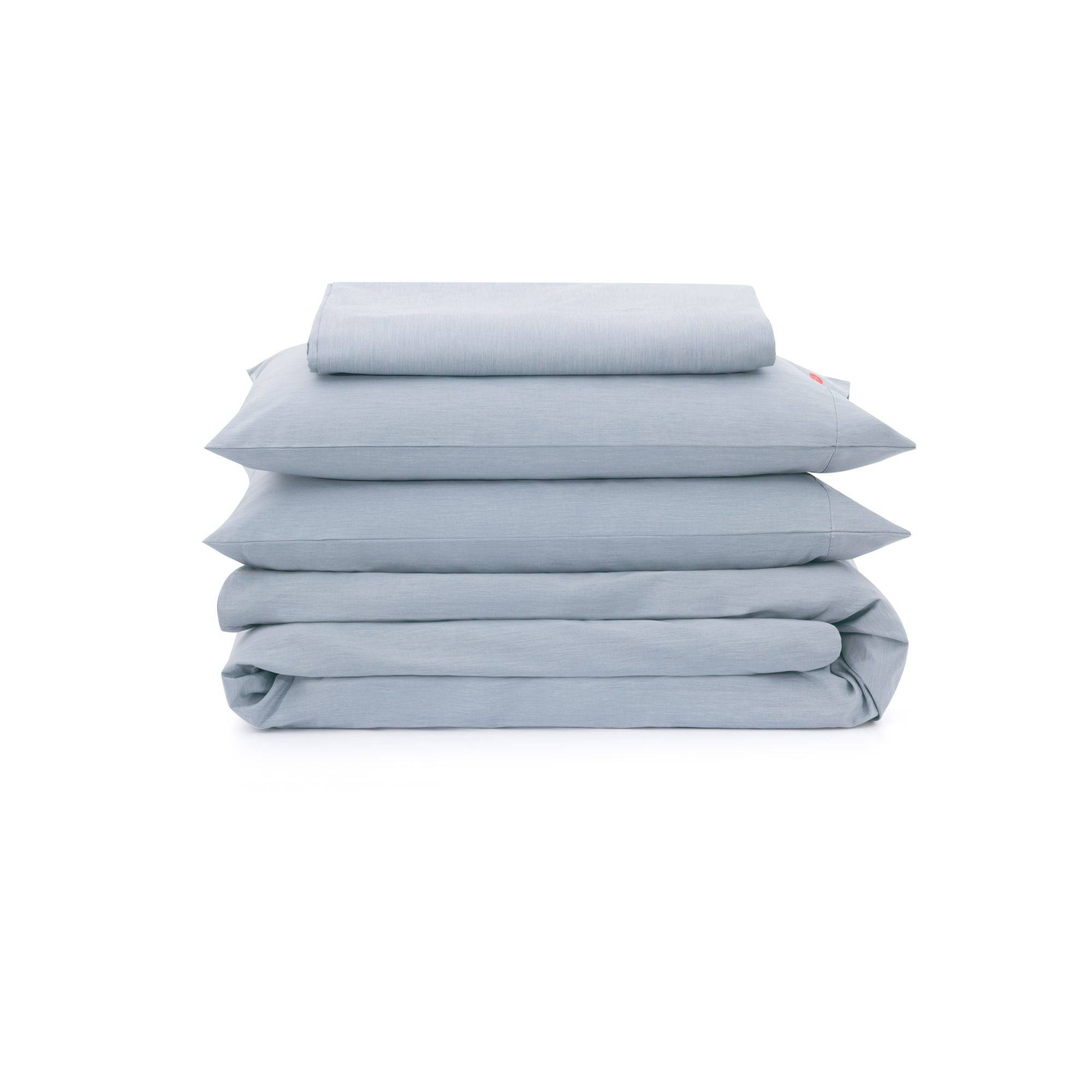We asked Artificial Intelligence to write a blog post about sustainability, specifying that it include commentary on greenwashing.
We were not prepared for the result.
The article was...comprehensive. Nuanced, even. It felt intelligent. Which was a bit intimidating to experience. We read it again and again before we finally realized it wasn't actually saying all that much of substance.
To be honest, that probably could have improved if we simply knew better what to ask; after all, AI has the world's information at its metaphorical fingertips. To our understanding, publicly available AI is a synthesis of everything written on the internet ever, up until 2021. So when asked to write a piece on sustainability, ChatGPT had no problem collating an 'opinion' and a blog that felt somehow both intelligent and superficial. Which left us to wonder if this isn't itself a commentary on the state of our collective conversation about 'Sustainability'; that it is no longer really saying all that much of substance.
If that's true, though, it's not because there is nothing left to say; it's because we've found ourselves in an echo chamber, and the reverberation is starting to sound hollow. Would that change if we start listening to all forms of wisdom, ancient and modern? Would that change if more people start working together to take action -- from joy, from care, from love -- instead of hiding behind criticisms of one another, or vilifying an 'enemy'?
Would it change if we slowed down enough to actually see what we are doing, to feel the truth of a word like 'interconnectedness' in our hearts, to understand that our choices have impacts half a world away, as much as they do in our own organism?
We think so.
For our part, this article definitely made us think. What could we still contribute to this movement -- this life -- were everything to become automated?
Empathy. Hope. Grief. Art. Intentionality. Humility. Presence.
Yeah. Those things. And a heck of a lot more.
(...but then the question: are any of these original thoughts though? Do they need to be? Ahhhhhhhh!)
And in the meantime, we let the AI teach us, too. Specifically, we questioned whether we might be passively guilty of any of the 'greenwashing' it called out so succinctly. How humbling. How exciting.
And now... for our entirely AI-written blog piece:
Behind the Thread - Sustainability is More than a Marketing Claim
Sustainability is en vogue - but why?
Sustainability is a concept that is becoming increasingly important in our modern world. At its core, sustainability is about creating a world that is both equitable and environmentally responsible for future generations. It is about understanding the interconnectedness of all living things, and how our actions today can have lasting impacts on the planet’s future. Companies, also in the fashion industry, have long caught on.
However, sustainability is more than just a catchall term for environmentalism. It is a deep and philosophical view of our place in the world. It is about recognizing our responsibility to take care of the planet and its inhabitants, as well as reflecting on our individual roles within the global system. We must strive to not only reduce our consumption and waste but also to consider ways we can actively promote social change and justice.
As the need for environmental responsibility grows, manufacturers are being urged to make more sustainable choices when creating textiles. Those who do are financially rewarded by c young and old. This is why, this shift towards sustainability has also sparked a rise in “greenwashing”—the practice of making unrealistically lofty claims of sustainability through creative marketing. In the textile industry, these claims often take the form of false promises of “eco-friendly” or “sustainable” fabrics without any concrete proof or evidence. 
Thus, there is widespread misuse of the word “sustainability” in the textile industry. Some manufacturers use the term as a catch-all phrase to describe any product made with ethically sourced organic materials, even if their processes and methods contribute to further waste and pollution. Other manufacturers mislabel non-recyclable fabrics, such as polyester, as “eco-friendly” in order to capitalize on consumer demand for sustainable goods.
Let's be Imperfectly perfect.
It is clear that there is an important role for both manufacturers and customers to play in creating a more sustainable textile industry. Customers must be vigilant to identify greenwashing and be proactive in researching the sustainability of textiles and clothing. Changing one’s mindset from “fast fashion” to buying fewer items of higher quality is also an essential step in promoting sustainability. It is up to all of us to create a more sustainable world by making conscious and informed decisions about our clothing purchases.
Sustainability should not be a mere marketing claim, but rather a direction we must strive towards as humans. It is about recognizing our responsibility to protect the planet and all its inhabitants, and understanding that our actions today can have lasting impacts on the future. Ultimately, sustainability is about striving for balance within our environment and society. It is about understanding that our actions today will reverberate in the future, and that small changes can make a big difference. As we move towards a more sustainable future, let us remember that every effort counts, and that our individual choices can have a lasting and positive impact.







 Bedding
Bedding
 Clothing & Accessories
Clothing & Accessories
 Artisan Line
Artisan Line



1 comment
Ast york
Michel May’s contemplation on the role of AI in addressing sustainability is a thought-provoking exploration of the complexities within this critical issue. It’s intriguing to witness AI’s ability to generate comprehensive content that, while seemingly intelligent, sometimes lacks the depth of substance we expect from human discourse.
The article raises a pertinent question: Is our discussion about sustainability becoming an echo chamber, filled with well-intentioned yet superficial statements? May prompts us to consider the necessity of embracing diverse sources of wisdom and collaborating to take meaningful action driven by care and love, transcending divisive rhetoric.
Indeed, a key takeaway is the importance of slowing down, reflecting on our interconnectedness, and recognizing the global repercussions of our choices. It’s a call to move beyond rhetoric and engage in genuine, impactful efforts toward a sustainable future. A thoughtful read that encourages us to reevaluate our approach to sustainability.
Leave a comment
All comments are moderated before being published.
This site is protected by hCaptcha and the hCaptcha Privacy Policy and Terms of Service apply.